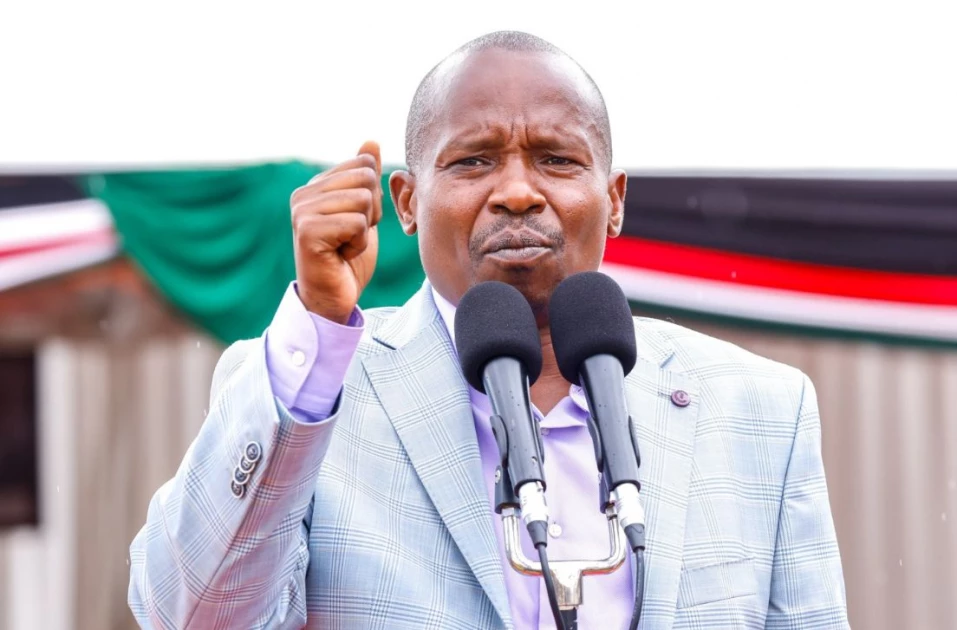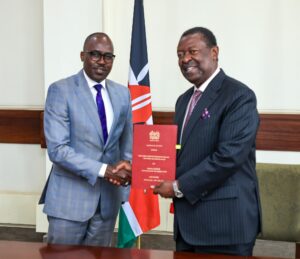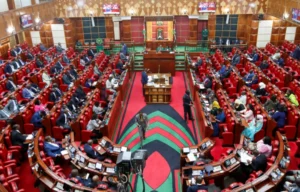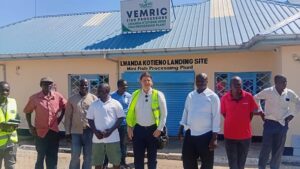DP Calls for Stronger National-County Ties
Kindiki called for unwavering dedication to the agenda of the government for macroeconomic stability, value chain change, infrastructure growth, job creation,

the DP reminded both governments of their responsibility to preserve devolution, calling it one of the most promising legacies of Kenya's 2010 Constitution. Photo/DPPS
By Juliet Jerotich
Deputy President Kithure Kindiki has emphasized the need for increased cooperation between county and national governments as a means to realize the success of the Social Health Authority (SHA) and other collaborative initiatives. He noted that open and constructive dialogue is essential if Kenya is to realize the maximum benefits of Taifa Care, which is one of the most ambitious health reforms in Kenya.
Taifa Care as a Landmark Health Program
In his remarks when opening the 28th Ordinary Session of the Intergovernmental Budget and Economic Council (IBEC) in his official residence in Karen, Nairobi, the Deputy President had termed Taifa Care as a game-changer.
We are embarking on one of the most ambitious health programs. What we are embarking on with Taifa Care is of great importance. Many countries have tried and fallen off doing publicly funded universal health coverage. Kenya has taken a great step,” Kindiki said.
To date, the roll-out of the Social Health Authority has been satisfactory. More than 26.5 million Kenyans have been enrolled, and 4.4 million contributors have paid about Ksh.70 billion towards medical coverage. The enrolled patients are now enjoying access to medical services in more than 10,000 accredited facilities spread across the country.
Progress and Distribution of SHA Funds
Based on official statistics, Ksh.59.3 billion has already been paid out in the Social Health Insurance Fund. Of this amount, Ksh.29.8 billion was paid to private healthcare providers, Ksh.13.7 billion to county facilities, Ksh.9.9 billion to faith-based hospitals, and Ksh.5.9 billion to national referral hospitals.
The enrollment levels in the leading counties are Mombasa, Bomet, Kirinyaga, Elgeyo Marakwet, and Nyeri. On the other hand, the backbenchers’ seats remain with counties such as Garissa, Turkana, Isiolo, Marsabit, and West Pokot, which signify the need for further aggressive outreach in the marginal ones.
IBEC as a Dialogue Platform
The Deputy President highlighted IBEC as a central forum for dialogue between county and national governments. He further noted that it provides the correct platform to address issues on devolved, shared, and national functions.
“IBEC forms the bedrock of the consultations between the two governments. It is here that we address issues arising to improve the ease and mutually rewarding character of intergovernmental relations,” Kindiki elaborated.
Other than Health: Other Priority Areas
The meeting also discussed other pressing issues like productivity in agriculture, speedy development of County Agricultural and Industrial Parks, timely payment of pending bills, and speedy release of county funds.
Kindiki called for unwavering dedication to the agenda of the government for macroeconomic stability, value chain change, infrastructure growth, job creation, and education and health improvement.
We must look at the economy as a unified system. Priorities we undertake at the national level must align with those undertaken at the county level,” he begged.
Safeguarding Devolution
Finally, the DP reminded both governments of their responsibility to preserve devolution, calling it one of the most promising legacies of Kenya’s 2010 Constitution.
“We must preserve and achieve devolution just as we preserve and achieve the Constitution,” he emphasized.





